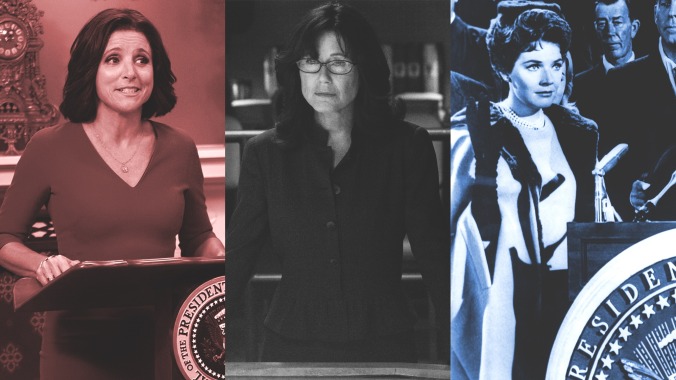13 onscreen female presidents who would be better than Donald Trump

In November 2016, we seemed mere hours away from the first female president, but that particular brand of leader remains available only in fictional form. Unable to land (so far) in reality, a female leader of the free world has shown up everywhere from sitcoms to dystopian YA landscapes. Yet some of these earlier efforts could be generously described as less than feminist, as the commander in chief easily gets distracted from national affairs by family squabbles with her spouse or kids. (Would any of this had happened to Madison or Eisenhower?) More recent female presidents have fortunately proved to be much more formidable. Below we offer a list of our favorite or most memorable female presidents in pop culture; even though some of them have some serious flaws, we’d still take them over our current president.
 Keep scrolling for more great stories.
Keep scrolling for more great stories.
